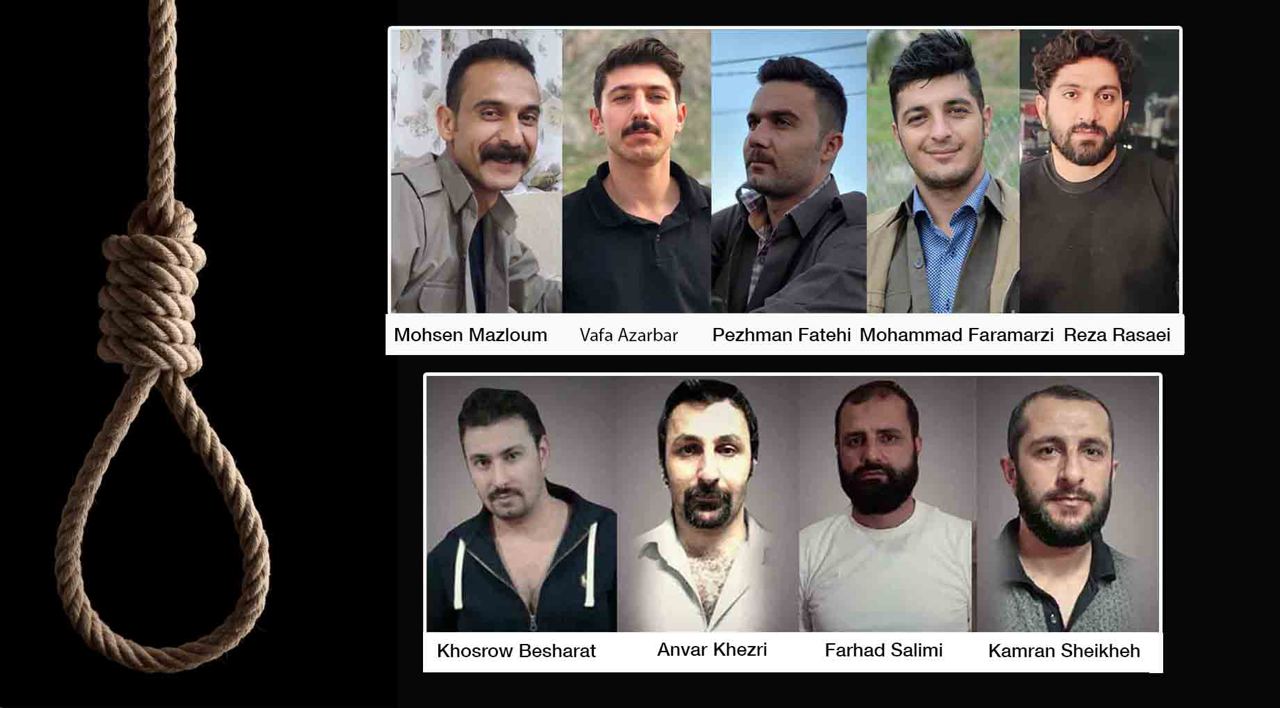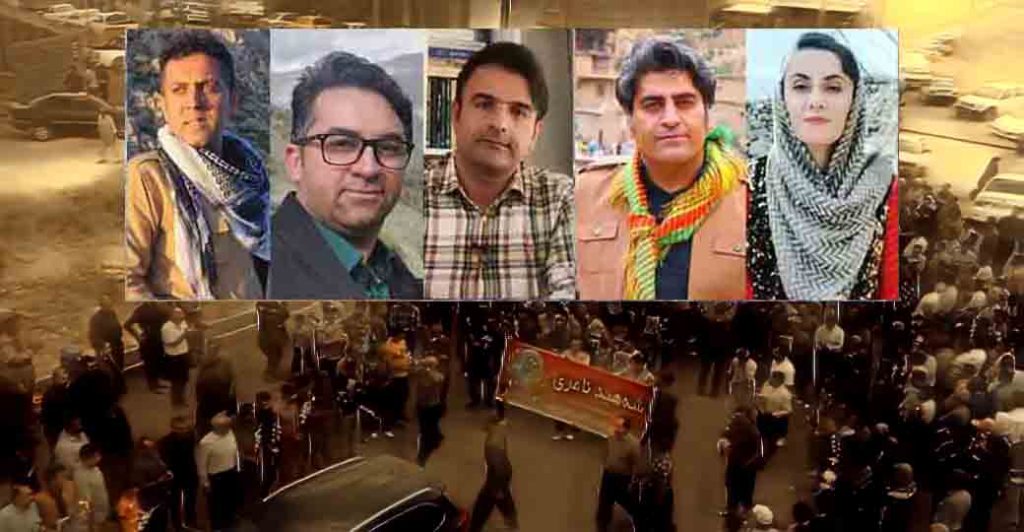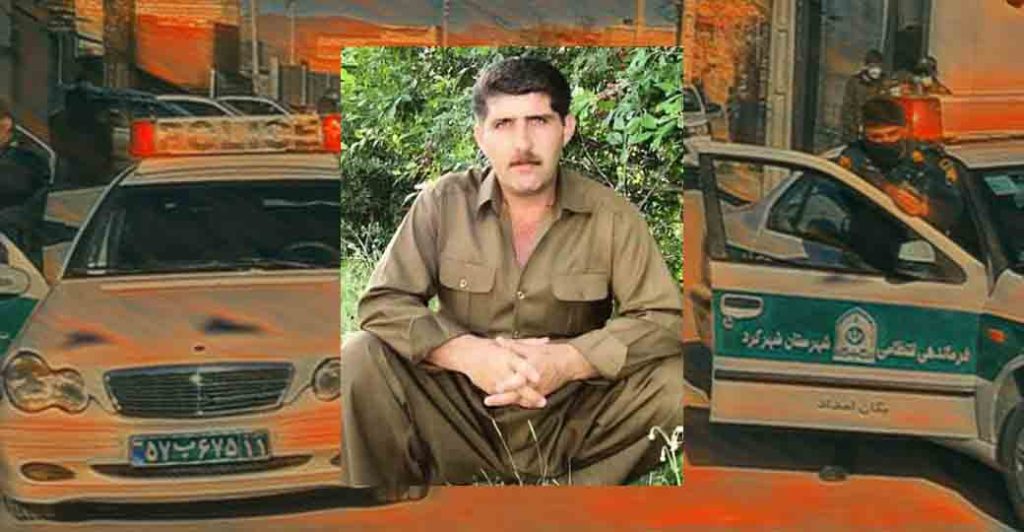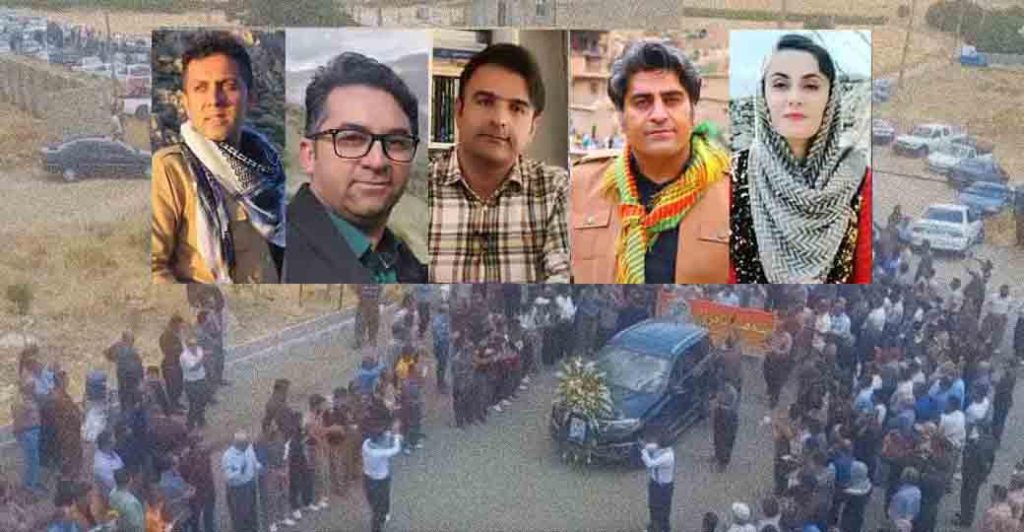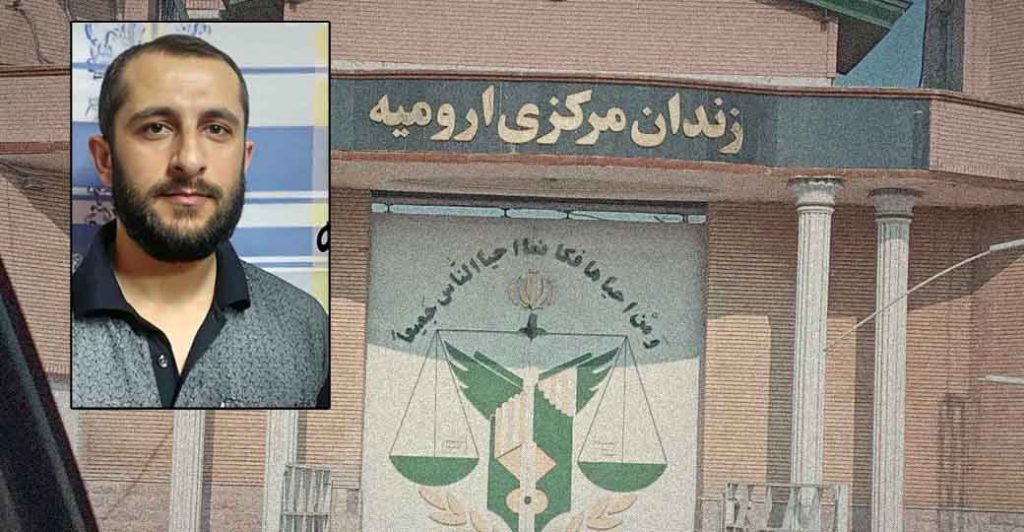Some nine Kurdish political and religious prisoners are currently facing imminent execution in prisons in Karaj, Alborz Province, and Kermanshah, Kermanshah Province, as well as in an undisclosed detention centre.
The identities of these individuals are Kamran Sheikheh, Khosrow Besharat, Farhad Salimi, Anvar Khezri, Pezhman Fatehi, Vafa Azarbar, Mohsen Mazloum, Mohammad Faramarzi, and Reza Rasaei.
These prisoners were sentenced to death during unfair trials on charges of “spreading corruption on earth” (efsad-e fel arz), “enmity against God” (moharebeh), “espionage for Israel,” and “involvement in intentional murder”.
The Kurdistan Human Rights Network (KHRN), while warning against the imminent execution of these nine Kurdish political and religious prisoners and other political prisoners on death row in Iran, including Mojahed Kourkour, Farshid Hossein-Zehi, Mansour Dehmordeh, etc., joins their families and public opinion in demanding the halting of the execution of these prisoners and the abolition of the death penalty in Iran.
The recent execution of three co-defendants of Sunni Kurdish prisoners of conscience Kamran Sheikheh, Khosrow Besharat, Farhad Salimi and Anvar Khezri, who are currently being held in Ghezel Hesar prison in Karaj, has heightened concerns about their imminent execution.
Their co-defendants Ghassem Abasteh, Ayoub Karimi and Davoud Abdollahi were executed on 5 November 2023, 29 November 2023 and 2 January 2024 respectively, after 14 years of imprisonment in Ghezel Hesar Prison on charges of “spreading corruption on earth” (efsad-e fel arz), despite the efforts of their families and the opposition of human rights organisations.
The four death row prisoners have been on hunger strike since 3 January following the execution of their co-defendant Davoud Abdollahi and the threat of their own imminent execution.
All seven co-defendants were arrested by security forces in Saqqez, Kurdistan province, and Mahabad, West Azerbaijan province, between December 2009 and January 2010.
They were then taken to the Ministry of Intelligence detention centre in Orumiyeh, West Azerbaijan Province, where they were subjected to physical and psychological torture for several months in order to extract forced “confessions”.
In March 2016, the trial of these seven prisoners on charges such as “acting against national security”, “propaganda against the state”, “membership in Salafi groups”, and “spreading corruption on earth” was held in Branch 28 of the Islamic Revolutionary Court in Tehran, presided over by Judge Moghiseh.
On 25 May 2016, they were officially informed of the death sentence. After the lawyer objected to the issued verdict, the case was referred to the Supreme Court. In Early 2017, this verdict was overturned.
After the referral of this case to Branch 15 of the Islamic Revolutionary Court in Tehran, presided over by Judge Salavati, in June 2018, these seven prisoners were again sentenced to death on charges of “spreading corruption on earth.”
Following the lawyer’s objection to the issued verdict, the case was referred to Branch 41 of the Supreme Court, and in February 2020, this verdict was upheld.
Pezhman Fatehi, Mohsen Mazloum, Mohammad Faramarzi, and Vafa Azarbar have been forcibly disappeared since their arrest in 2023 and their fate and place of detention remain unknown.
These four members of the Komala Party of Iranian Kurdistan were arrested by the Ministry of Intelligence on 22 June 2023 in a village in Orumiyeh, West Azerbaijan Province.
Since their arrest, their families and lawyers have had no contact or meetings with them.
These four individuals were sentenced to death about two months ago in an unfair trial by Branch 26 of the Islamic Revolutionary Court in Tehran on charges of “spying for Israel”, a sentence recently upheld by the Supreme Court.
Following the recent broadcast of their forced confessions on state television and the increased possibility of their execution, some members of their families protested outside Evin Prison on 14 January.
Reza Rasaei, a Yarsani Kurdish political prisoner from Sahneh in Kermanshah Province, was arrested on 24 November 2022, six days after the commemoration ceremony of the anniversary of late Seyed Khalil Alinezhad, a distinguished artist and Yarsani community leader, which evolved into an anti-government protest, influenced by the nationwide demonstrations triggered by the government’s killing of Jina Mahsa Amini.
He was arrested in Shahriar, Tehran province, and transferred to the Ministry of Intelligence detention centre in Sahneh, where he was severely tortured for a week on charges of “involvement in the intentional murder” of Nader Beyrami, the head of the Islamic Revolutionary Guard Corps (IRGC) intelligence organisation in Sahneh.
On 7 October 2023, Branch Two of the Criminal Court in Kermanshah, presided over by Judge Mohammad Rasoul Haghnejati and consultant Amin Mohammadi, sentenced Rasaei to death, payment of blood money, one year in prison, and 74 lashes.
The court charged Rasaei with “involvement in intentional murder” of Nader Beyrami, the head of the Intelligence Organisation of the IRGC in Sahneh, “involvement in the intentional infliction of non-fatal injuries”, “demonstrating strength with a knife” and “disrupting public order by creating chaos and commotion”.
Rasaei was sentenced to death under the Islamic law of qisas, or retribution-in-kind, which gives the victim’s family the right to retaliate.
The Kurdistan Human Rights Network (KHRN) has learned that some Revolutionary Guard commanders, together with the family of Nader Beyrami, are demanding the immediate execution of Reza Rasaei, who is currently being held in Dizel Abad Prison in Kermanshah.

